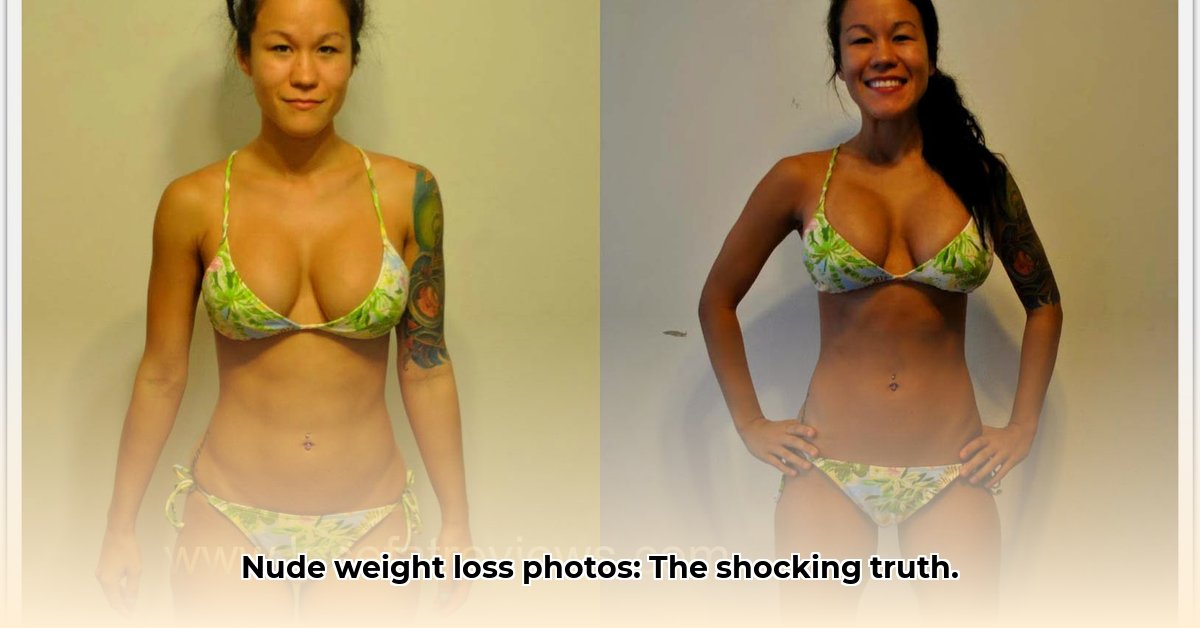
We've all seen the inspiring before-and-after photos: dramatic transformations that seemingly happen overnight. These images, often showcasing nude weight loss, often present a simplified narrative: hard work equals amazing results. But the reality of extreme weight loss is far more complex, nuanced, and frequently, far more challenging than these polished pictures suggest. This article aims to provide a comprehensive and realistic understanding of this journey, exploring the physical and psychological complexities often omitted from idealized portrayals.
The Illusion of Effortless Transformation
Those perfectly posed before-and-after photos, many featuring nude weight loss, are carefully curated. The angles are chosen, lighting is optimized, and imperfections are often digitally enhanced. What's missing from these images are the struggles, the setbacks, and the intense emotional roller coaster that accompany extreme weight loss. The implication that this transformation is achieved simply through willpower and diet is fundamentally inaccurate. Extreme weight loss requires an immense commitment, perseverance, and it’s a journey, not a quick fix. The physical and emotional challenges are significant and rarely captured in a single, triumphant photograph. Is it realistic to expect such effortless results without a full understanding of the involved sacrifices?
The Physical Realities: Beyond the Scale
Dramatic weight loss often leads to significant, and often uncomfortable, physical changes. Excess skin, for instance, is a common consequence. The amount of loose skin can be substantial, leading to chafing, discomfort, increased risk of infection, and significant impact on self-confidence. While before-and-after photos often highlight the slimmer physique, they rarely depict this reality. Addressing excess skin frequently requires extensive, expensive surgical procedures like abdominoplasty (tummy tuck), panniculectomy, thigh lifts, or arm lifts, each with their own recovery time and potential complications. The process of rapid weight loss itself can strain organ systems, potentially leading to various health issues requiring careful monitoring and management. The initial joy of weight loss can quickly diminish when confronted with these physical realities. How many before-and-after photos accurately depict the physical challenges of this process?
The Psychological Impact: A Deeper Dive
The emotional toll of extreme weight loss is frequently overlooked. Many individuals embark on this journey with pre-existing mental health concerns like body dysmorphia or eating disorders. Paradoxically, the weight loss process itself can exacerbate existing issues or trigger new ones. While weight loss might initially appear a solution, it often fails to address underlying psychological issues. Some individuals may even develop a new form of body dysmorphia, constantly scrutinizing their appearance despite achieving their weight goal. The pressure to maintain this new body image is intense and stressful. The mind and body are inextricably linked; focusing solely on weight loss without addressing mental health aspects can hinder overall well-being. What support systems are in place to address the psychological complexities of such a transformative journey?
The Influence of Social Media's "Perfect" Pictures
Social media significantly influences our perceptions of weight loss. The constant stream of flawlessly edited photos, including seemingly effortless nude weight loss pictures, creates unrealistic expectations. These images lack context, omitting the countless hours of exercise, the emotional struggles, and the potential health challenges. This carefully curated reality fuels feelings of inadequacy and self-criticism, making individuals feel as if they are constantly falling short. It's crucial to remember that these images represent only a carefully selected highlight reel, omitting the numerous challenges individuals face. How can we foster more realistic expectations given the prevalent influence of curated online content?
A More Realistic and Balanced View
Let's shift the focus. Let’s celebrate the journey, not just the destination. Extreme weight loss is a marathon, not a sprint; it’s acceptable if your "after" doesn't precisely match the idealized images seen online. The emphasis should be on overall well-being – physical and mental – not just a number on the scale. True success lies in developing sustainable healthy habits and fostering a positive relationship with your body, irrespective of weight. What factors contribute to a more realistic and sustainable approach to weight loss?
Supporting the Journey: A Holistic Approach
Supporting someone on this journey requires a comprehensive strategy:
- Professional Guidance: A team including a therapist, dietitian, and potentially a surgeon can provide customized support.
- Managing Expectations: Acknowledge setbacks; celebrate small victories and focus on progress, not perfection.
- Prioritizing Self-Care: Listen to your body and mind; engage in joyful and relaxing activities.
- Building a Support System: Connect with others who understand the challenges. Support groups offer community and shared experiences.
Extreme weight loss is intensely personal; approach it with empathy and understanding, focusing on sustainable changes and embracing reality, not merely idealized images. Let's move beyond the superficiality of before-and-after photos and focus on genuine support and celebrating the entire journey, not just the end result.